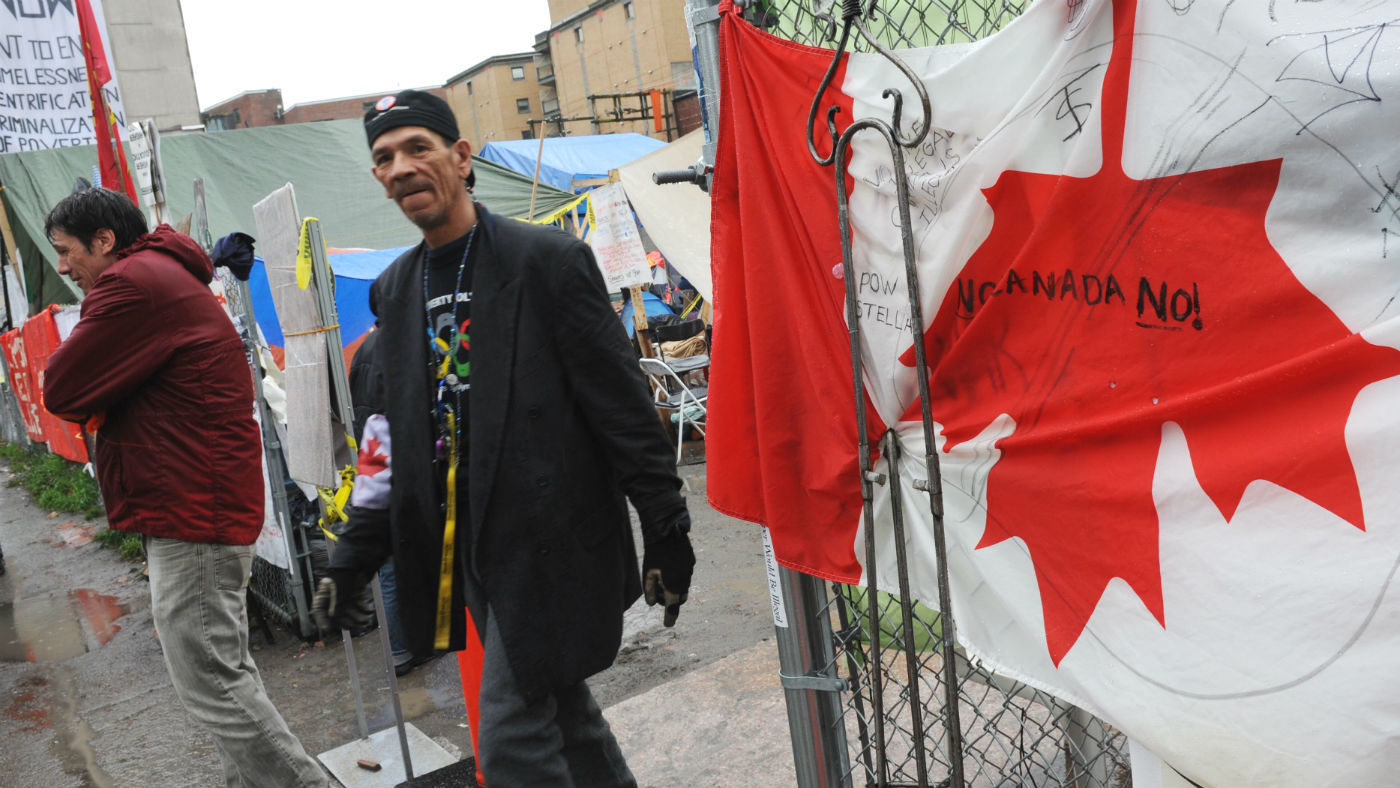Quebec to launch world’s biggest basic income scheme
Anti-poverty plan will give 84,000 people £10,500 a year

A free daily email with the biggest news stories of the day – and the best features from TheWeek.com
You are now subscribed
Your newsletter sign-up was successful
The Canadian province of Quebec is to launch the world’s biggest ever basic income scheme as part of a $3bn (£1.75bn) anti-poverty plan.
Around 84,000 people with physical and intellectual disabilities who are unable to work will receive $18,029 (£10,517) a year by 2023, taking them over the state’s $18,000 (£10,500) poverty threshold, the Montreal Gazette reports.
The project, which largely targets single people, intends to bring some 100,000 people out of poverty by 2023, government officials told reporters.
The Week
Escape your echo chamber. Get the facts behind the news, plus analysis from multiple perspectives.

Sign up for The Week's Free Newsletters
From our morning news briefing to a weekly Good News Newsletter, get the best of The Week delivered directly to your inbox.
From our morning news briefing to a weekly Good News Newsletter, get the best of The Week delivered directly to your inbox.
However, The Independent says anti-poverty groups have criticised the plans, “claiming they do not go far enough and that the offer of support should be unconditional”.
Campaigner Serge Petitclerc told CBC News that the plans will create two different classes of people in poverty. He said that while those who have severe limitations preventing them from working will receive support, others living in poverty are still expected to find employment and will lose out under the scheme.
Meanwhile, Quebec’s main opposition leader, Jean-Francois Lisee, also criticised the proposed basic income measure, saying it only benefits a small portion of the population and is “far from the general idea of guaranteed minimum income”.
Canada has led the way in trialling basic income schemes. Quebec’s neighbouring province of Ontario is currently conducting an experiment with 4,000 participants to see if it improves the lives of those on low incomes or people receiving benefits.
A free daily email with the biggest news stories of the day – and the best features from TheWeek.com
-
 6 exquisite homes with vast acreage
6 exquisite homes with vast acreageFeature Featuring an off-the-grid contemporary home in New Mexico and lakefront farmhouse in Massachusetts
-
 Film reviews: ‘Wuthering Heights,’ ‘Good Luck, Have Fun, Don’t Die,’ and ‘Sirat’
Film reviews: ‘Wuthering Heights,’ ‘Good Luck, Have Fun, Don’t Die,’ and ‘Sirat’Feature An inconvenient love torments a would-be couple, a gonzo time traveler seeks to save humanity from AI, and a father’s desperate search goes deeply sideways
-
 Political cartoons for February 16
Political cartoons for February 16Cartoons Monday’s political cartoons include President's Day, a valentine from the Epstein files, and more
-
 Greenland’s capital becomes ground zero for the country’s diplomatic straits
Greenland’s capital becomes ground zero for the country’s diplomatic straitsIN THE SPOTLIGHT A flurry of new consular activity in Nuuk shows how important Greenland has become to Europeans’ anxiety about American imperialism
-
 Epstein files topple law CEO, roil UK government
Epstein files topple law CEO, roil UK governmentSpeed Read Peter Mandelson, Britain’s former ambassador to the US, is caught up in the scandal
-
 Iran and US prepare to meet after skirmishes
Iran and US prepare to meet after skirmishesSpeed Read The incident comes amid heightened tensions in the Middle East
-
 Israel retrieves final hostage’s body from Gaza
Israel retrieves final hostage’s body from GazaSpeed Read The 24-year-old police officer was killed during the initial Hamas attack
-
 China’s Xi targets top general in growing purge
China’s Xi targets top general in growing purgeSpeed Read Zhang Youxia is being investigated over ‘grave violations’ of the law
-
 Panama and Canada are negotiating over a crucial copper mine
Panama and Canada are negotiating over a crucial copper mineIn the Spotlight Panama is set to make a final decision on the mine this summer
-
 Why Greenland’s natural resources are nearly impossible to mine
Why Greenland’s natural resources are nearly impossible to mineThe Explainer The country’s natural landscape makes the task extremely difficult
-
 Iran cuts internet as protests escalate
Iran cuts internet as protests escalateSpeed Reada Government buildings across the country have been set on fire